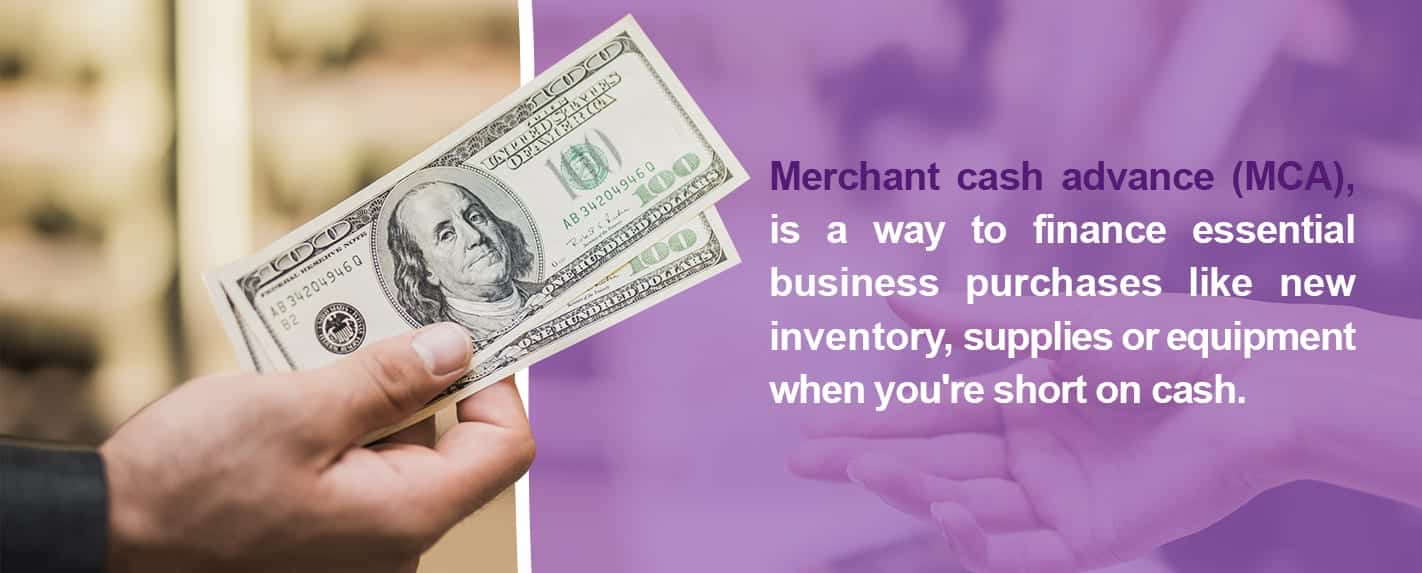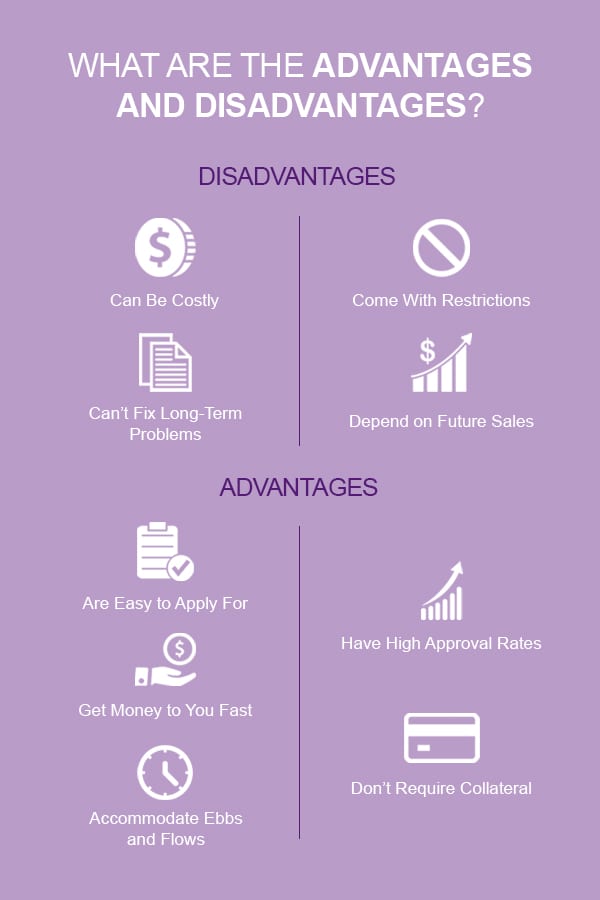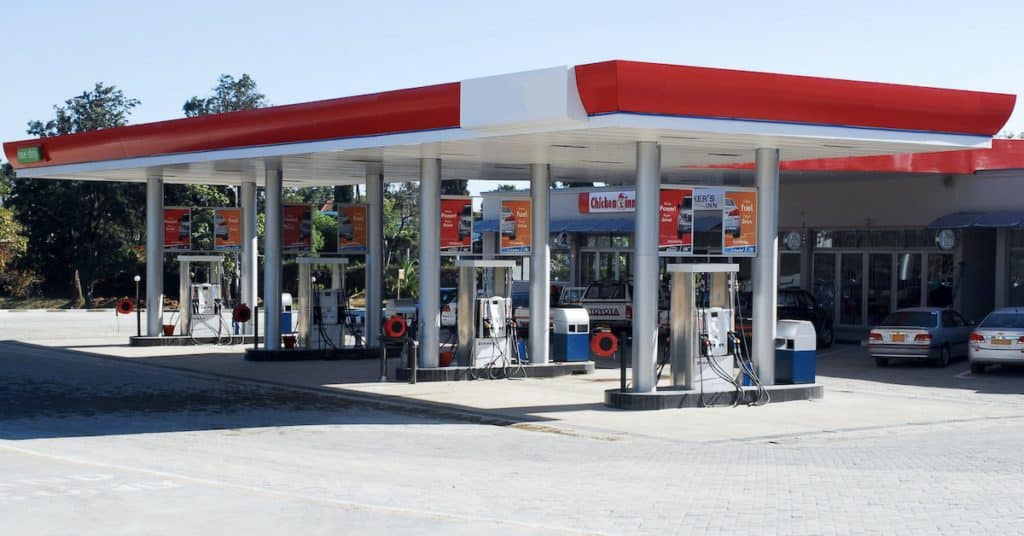An old phrase states, “It takes money to make money.” Small business owners are keen on this expression, especially when circumstances beyond their control upend a normally smooth cash flow. This is particularly true during economic uncertainty, when access to capital can be limited, and business owners may need to get creative with their financing options.
Resources are available to help them navigate these challenges and keep their businesses afloat. One such resource is a cash advance for small businesses. Business owners may think primarily about taking out a bank loan, but a cash advance from small businesses can be a viable alternative.
There are serious pitfalls to obtaining cash through a bank loan. One of the main drawbacks is that bank loans often come with high interest rates and strict repayment terms. Additionally, the application process can be lengthy and require extensive documentation, making it difficult for small businesses to qualify.
Fortunately, there is a better way. Cash advances for small businesses, also known as payday loans, are a type of short-term loan that can provide quick access to cash for those in need.
What Is Cash Advances for Small Businesses?
A cash advance, or merchant cash advance (MCA), is a type of financing that allows small businesses to receive a sum of money in exchange for a percentage of their future sales. Essentially, the lender provides the business with an advance on their future revenue. In return, the business agrees to repay the advance plus a fee by deducting a portion of their daily credit and debit card sales.

Cash Advance vs. Bank Loans
When comparing a cash advance and a bank loan, many differences between them help merchants decide what would be best for them in the long run. When applying for a conventional bank loan, the merchants can only use the funding for one project, and the bank loan may incur exorbitant interest rates and hidden costs.
Getting approved for a bank loan involves the institution reviewing and assessing the merchant’s credit history, assets, and capital. When applying, merchants must prove that they can pay it back. Once the bank loan is finalized, they will likely have to start paying the money back by making monthly payments after 30 days.
A cash advance, however, can be used to pay for renovations, buy new equipment, and replenish a rainy day fund. The application process is far more straightforward and has a faster review process. In addition, the approval criteria are usually less stringent than those for a bank loan, for which a good credit rating is essential.
Additionally, a cash advance provides money to company owners considerably faster than a bank loan. Generally, merchants should look for a cash advance company that offers financing options, flexible credit requirements, quick processing times, and competitive interest rates.
Why Do You Need One for Your Small Business?
1. You Need Cash Now
The most basic reason to consider a merchant cash advance is the need for access to cash. There are many reasons why merchants may need money right away. For example, one debilitating problem some small businesses experience is not having the money to fulfill purchase orders and replenish inventory. This can lead to having bare shelves and driving customers to other establishments that carry the desired items.
If merchants find themselves in a situation where they need money before making money, then a cash advance is a valuable option.
2. You’ve Exhausted Your Spending Budget
A cash advance can be a helpful option for a merchant who needs immediate funds to expand their business. In the first few years of a business launch, a merchant may not have a long credit history or collateral to offer for a traditional bank loan, making it challenging to secure financing. A cash advance typically carries fewer requirements for a business operating for six months or more, with a faster approval process.
A merchant can invest in inventory, marketing, or equipment to improve business operations and attract customers. Additionally, since cash advance repayment is based on a percentage of sales, it can be a more manageable option for new businesses.
3. You Have Bad Credit
A merchant’s credit score below 75 may have difficulty getting approved for a bank loan. They could also apply for a personal loan, but they’ll probably need their credit score around 700 for a small loan or closer to 800 if they want a more substantial amount.
The credit score is based on factors such as credit management, credit history, and the amount of credit a merchant carries. While poor decisions or mismanagement may have led to a bad credit score, they may experience difficult circumstances beyond their control.
The bank will not research the reasons for their poor credit rating; they’ll reject the application based on credit bureau numbers. However, a low credit score won’t necessarily sink their chances when applying for a cash advance.
How Do Cash Advances Work?
So, how exactly does a cash advance work?
A cash advance allows businesses to access funds quickly, often within 24 hours. Businesses can apply and provide financial documents for review to get a cash advance. The provider will calculate the factor rate based on the company’s financial condition, including sales and credit score. The factor rate is a proportion of the total amount requested by the business.
After determining the factor rate, the provider will generally advance the requested cash to the business in one lump sum. Businesses can repay the advance plus the factor rate fee to the provider.
Payments are typically collected on a daily or weekly basis by the provider. The terms of the cash advance will clearly outline how much money the business will receive, how much the merchant will pay back, and how they will make those payments.
On the other hand, a bank loan does not offer a set time in which they need to pay back a cash advance. The application process involves the institution reviewing the business’s credit history, assets, and capital.
When applying, merchants must prove that they can pay it back. Once that is finalized, they must start paying the money back by making monthly payments after 30 days. When taking out a loan, merchants need to pay an interest rate on their money.
This rate depends on several factors, such as their credit history and the amount of money they receive. The payment plan can be stretched over several years, with the applicant making monthly payments until paid in full. Thus, when getting a bank loan, merchants must pay close attention to the commitment they will uphold.

Advantages & Disadvantages of a Small Business Cash Advance
As with any form of financial assistance, cash advances have some potential disadvantages, but the many advantages outweigh them. Let us look at the pros and cons of getting a cash advance:
Disadvantages
When researching cash advances, retailers may see warnings of their potential snags. Still, in many cases, these aren’t necessarily disadvantages unless they falsely expect what they’re achieving with a cash advance.
1. Can Be Costly
Compared to other forms of financial assistance, cash advances can be expensive. Most factor rates fall between 1.1 and 1.5, so retailers could pay 50 percent more back than they received in the worst-case scenario. Look for a contract with a lower factor rate. The lower the factor rate, the smaller the percentage above the advance they must pay back.
2. Come With Restrictions
Cash advances come with restrictions that set forth the terms of the repayment agreement. These restrictions can include any condition, such as a minimum amount of sales or revenue the business must generate each month, a limit on the amount of capital merchants can access, or a set repayment schedule. Some MCA providers may also require a certain percentage of a business’s future sales to be set aside to ensure payment if they do not meet the sales requirements. Ultimately, these restrictions aim to ensure that retailers can repay the cash advance and that the provider will be repaid as agreed.
3. Can’t Fix Long-Term Problems
Cash advances help businesses resolve temporary challenges to continue their cash flow and generate income. When a company has ongoing cash flow issues, it indicates that some inherent problems in the business structure need to be solved. In this case, a cash advance only puts a bandage on the problem and is not a permanent solution. The good news for a struggling business is that it can apply for more than one cash advance with a higher likelihood of approval than applying for multiple bank loans, which a struggling business cannot repeatedly obtain.
4. Depend on Future Sales
This is not necessarily a disadvantage, but the future can be unpredictable. For instance, no one could have predicted that the COVID-19 pandemic would drastically slow business. Once a retailer gets a cash advance, their business will need to work hard to bring in plenty of sales so that they’ll be able to pay the MCA provider back quickly. However, there may be a chance their business won’t do as well as they expected and could take longer to pay the provider back, increasing their risk factor.
Advantages
Cash advances also come with more than their fair share of valuable benefits, which is why they are a popular option for businesses that need a leg up. Don’t be scared away from trying a cash advance. Some of the pros of cash advances are:
1. Easy Applications
Applying for a cash advance is a very simple, straightforward process that requires less paperwork and fewer requirements. Merchants must provide their name, contact information, and monthly credit and debit card sales. The lender may also request bank statements and other financial documents to verify the business’s revenue and ensure it meets the repayment requirements. The application can be completed online rather than going to a bank or financial institution in person. Additionally, some lenders offer pre-approval and quick funding options, allowing businesses to access funds within a few days of applying.
2. Have High Approval Rates
Obtaining approval for a cash advance is much easier and quicker than receiving a traditional bank loan. Business owners may have to provide a few months’ worth of business bank statements or records of their past credit sales so the MCA provider can see that their business will do well enough to pay them back. They may also want to see the business’s credit history, but the standards won’t be as high as for a bank loan.
3. Get Funds
Obtaining funds from a cash advance is a simple and straightforward process for merchants. With a cash advance, a merchant can quickly access the funds they need to manage their day-to-day operations. The process is easy and secure. It typically involves submitting a short online application, providing a few documents, and having the funds deposited into their bank account within a few days. The speed and convenience of the cash advance process make it an ideal option for any retailer needing quick access to funds.
4. Doesn’t Require Collateral
A cash advance does not require collateral because it is short-term funding with a quick payoff. The lender does not require any type of collateral because the advance is for a short period, and the borrower has flexibility when paying back the funds. A cash advance is a form of unsecured loan, meaning the lender does not require security. The borrower must provide proof of income and a valid checking account to receive the loan. The lender will then issue the funding loan after evaluating the borrower’s ability to repay it.
5. Accommodate Ebbs and Flows
Loans with fixed monthly payments do not consider the natural ebbs and flows of the business. Some months may be great, while others see negative sales figures. While some cash advances involve set payments, the common model is that the provider gets a percentage of the retailer’s credit card sales. This means that if sales are down one month, so is their payment to the provider, which gives a merchant peace of mind.

When you may need a Cash Advance
Business Expansions
A business does not need to struggle to get funding. On the contrary, a small to mid-sized grocery or convenience store may be doing so well that it wants to expand its space but doesn’t have enough liquid money. With a program like NRS Funding, proprietors can tear down walls and make more space for their merchandise. An expansion may also be a matter of occupying a second store. Again, a cash advance is a wise investment if a retailer plans to generate more than enough revenue to pay back the advance and keep the business growing and prospering.
Remodeling/Renovation
When a new business finds a location, the space almost always needs work. A cash advance can be a helpful solution for store owners who need quick access to funds to make necessary improvements or upgrades to their store’s layout. Whether it’s a remodeling or renovation, the appearance of a new store goes a long way toward attracting new and loyal customers. A welcoming facade and a new, easy-to-navigate floor plan give patrons an entirely new shopping experience, giving the property a “wow” factor. In addition to the aesthetics, it’s equally important to pay attention to the functionality of the space. It’s essential to ensure that the store’s layout is efficient and that there is enough room for customers to navigate it comfortably.
New Equipment
A cash advance can help merchants acquire new equipment by offering them a lump sum of upfront money to purchase the equipment. This can benefit merchants, as the latest equipment can help them increase their productivity and efficiency, reducing operating costs and increasing profits. Newer equipment also often comes with better features and functionality, allowing merchants to serve their customers better and compete with other businesses. Updated equipment can also help extend the equipment’s life and reduce the need for maintenance and repairs.
Inventory & Supplies
A cash advance can be an invaluable tool for merchants to help manage their inventory and supplies efficiently. The funds can be used to purchase supplies, inventory, or other necessary business expenses that a merchant may need to stay ahead of demand and secure supplies promptly. Cash advances can also give merchants the financial flexibility they need to remain competitive. By providing access to capital when needed, merchants can purchase bulk, low-priced inventory and ensure they have the products their customers need. Cash advances can also help merchants avoid bank account overdrafts and other fees associated with traditional financing methods. Cash advance funding can be an efficient way for merchants to maintain inventory and supplies while taking advantage of financial flexibility.
Marketing & Advertising
To reach more customers, merchants must market and advertise their business. With a cash advance, merchants can have the necessary funds to invest in marketing campaigns, such as mailings, signage, social media ads, and email marketing.
A business can also use its cash advance to improve its online presence by creating a website or improving its Ecommerce platform. Business owners should also consider other ways to reach more customers, such as attending trade shows, hosting events, or partnering with other businesses. By obtaining a cash advance, merchants can have the financial flexibility to invest in marketing strategies and grow their customer base. This can ultimately lead to increased revenue and long-term success for their business.
Rainy Day Fund
A cash advance can help merchants create a rainy day fund for unexpected expenses or unexpected drops in revenue. By providing capital upfront, a cash advance can allow merchants to set aside funds for emergencies such as equipment breakdowns, seasonal fluctuations, or unexpected drops in sales. This fund can cover expenses without business owners worrying about taking out a loan or depleting working capital. With a cash advance, merchants can rest assured that they have the necessary funds to cover any unexpected costs.
Employee Payroll
A cash advance can be a helpful tool for a merchant who needs extra money to pay employees. Cash advances can eliminate the time-consuming process of waiting for a check to clear or for a merchant’s funds to transfer to and from their bank account. This helps merchants ensure their employees are paid on time, avoiding any setback or disruption to their payroll. Additionally, a cash advance can help merchants manage their cash flow more effectively, eliminating the need to take out a complicated, conventional loan or use a credit card to cover payroll expenses.
Everything You Need to Know About NRS Funding – Cash Advances For Your Small Business
When merchants struggle to find trustworthy companies, look no further than NRS Funding. Applications are easy to complete and only take a couple of minutes. Through its dedication to assisting small businesses, NRS Funding does not discriminate against those with lower credit scores.
Bad credit doesn’t eliminate a business from being considered for funding, and NRS Funding has a high approval rate. Once a merchant submits an initial application, a funding specialist will reach out to learn more about the business to advise on the best terms for their financial needs.
The approval process is very quick. Once approved for an advance, a merchant can expect to see funds in their bank account within as little as 24-48 hours.
NRS Funding also has flexible repayment options for business owners’ needs. Expert representatives are available to walk them through the entire process, from answering early-stage questions through the application process to finalizing a cash advance contract.
National Retail Solutions ensures that any agreement is transparent and clearly understood—no red tape or hidden fees!
Another advantage of NRS Funding cash advances is that the funds can be used in many ways. For instance, business owners can use part of their MCA to buy inventory and another part to purchase office supplies or equipment. If they want to understand how the process works, here is a three-step guide to help them:
- Application – Retailers can apply for a cash advance online at 800-212-1477. The application is easy to complete and takes just a few minutes.
- Review – A funding specialist will reach out to learn more about the merchant and their business. During this conversation, merchants can ask as many questions as they want.
- Approval – Once approved, retailers will receive their funds within 24-48 hours.
Finding the right provider for a cash advance cannot be overstated. A cash advance can be a great way for merchants to get quick funding to meet their business needs. It can be an excellent solution for those who need quick capital but don’t want to go through the lengthy and arduous process of applying for a traditional bank loan. With the right provider, cash advances can allow merchants to continue building revenue and growing their businesses.
To obtain a cash advance through NRS Funding, apply online at getnrsfunding.com or call NRS Funding at 800-212-1477.






